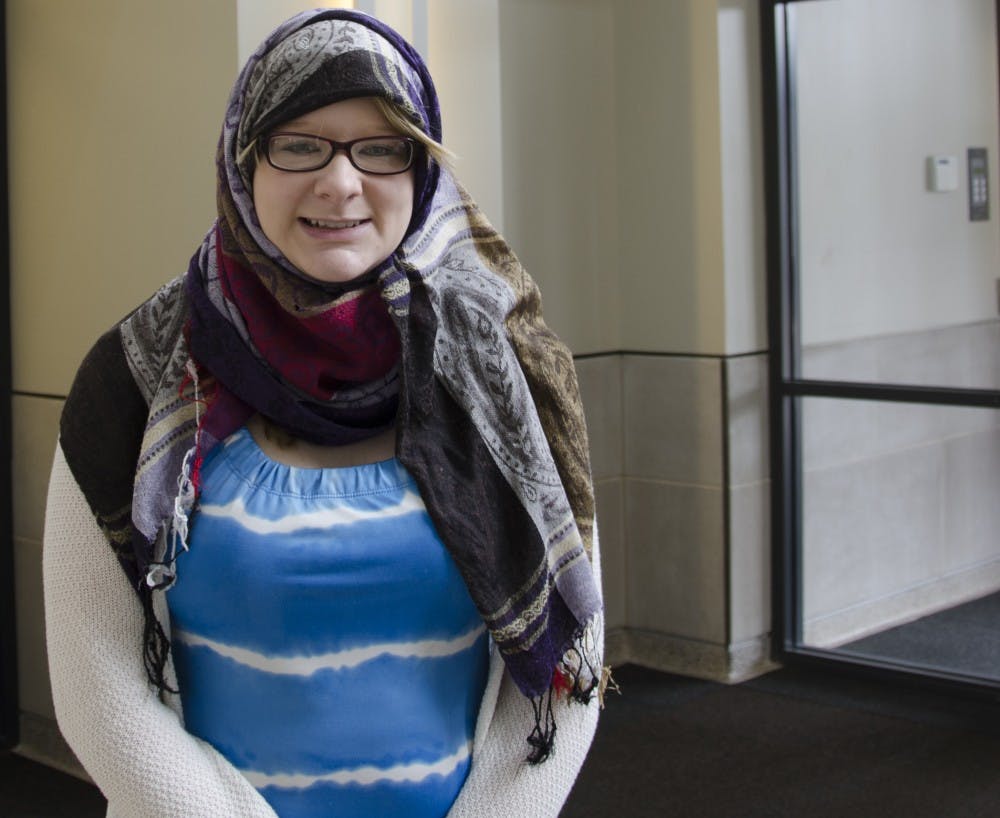Islamic Awareness Week continues through March 25.
March 24 is a day of Quran and prayer, with the showing of the Mecca and Medina, the teaching and explaining of the Islamic Prayer and a public prayer at the Bell Tower.
Nahyan Fancy, a professor of Middle Eastern history at Depauw University, will speak about the importance of Islam at 7 p.m. March 25 in the Art and Journalism Building Room 175.
The Arabic Club, Muslim Student Association and Saudi Club gave women an interactive way to learn about Islam March 23 as part of Islamic Awareness Week.
Female students tried on hijabs and were given authentic henna tattoos at the event, which was hosted in the David Letterman Communication and Media Building Lobby. Due to religious restrictions, men were not able to participate in the interactive portion, but could still learn about the activities.
Raven Stovall, a freshman, was walking through Letterman lobby when she saw the table and decided to stop by and get a henna tattoo. Although it’s not her first henna tattoo, she could tell the difference between the first one she received.
“I got one at Disney World but they didn’t use the same kind of ink. This one was made from spices; this is the real deal,” Stovall said.
Stovall said events that raise diversity awareness and encourage interaction are important to a college campus. While she was being tattooed, she was able to learn about the culture of Islam.
“Events like this, along with speeches, are both really important," Stovall said. "Some things you just can’t portray from a speech."
Sarah Alsaleh is a junior health science major. Originally from Saudi Arabia, Alsaleh has been in the United States for four years. She said henna tattoos are part of Islamic art and are traditional for women as part of their marriage ceremonies.
Muncie was the first city Alsaleh came to in America, and she said she has experienced a lot since moving.
“In Saudi Arabia, I was very restricted,” Alsaleh said. “I was worried because of my scarf how people would treat me [in the US], but I have never faced any problem.”
Alsaleh said she was happy to share her culture with fellow students.



